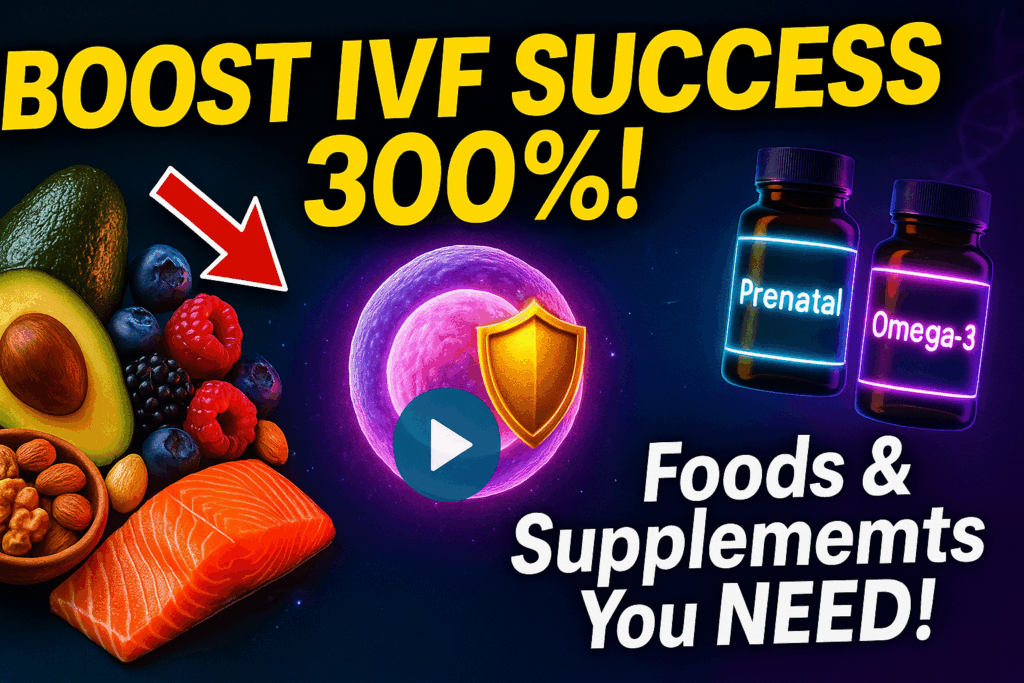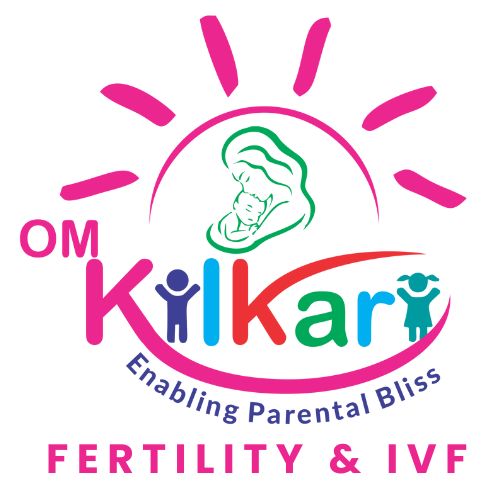Introduction

In vitro fertilization (IVF) is a complex and emotionally demanding process that requires optimal physical health for the best possible outcomes. While medical protocols play a crucial role, nutrition, lifestyle, and targeted supplementation can significantly influence IVF success rates. Research shows that diet, stress management, sleep, and specific nutrients can improve egg quality, sperm health, embryo development, and implantation rates.
This comprehensive guide explores:
✔ The best IVF-friendly diet (foods to eat and avoid)
✔ Lifestyle adjustments to boost fertility
✔ Essential supplements for both men and women
✔ Stress reduction and sleep optimization
✔ Scientific evidence supporting these strategies
Section 1: The IVF Diet – Foods to Boost Fertility
1.1 Key Nutrients for IVF Success
A well-balanced fertility diet should include:
| Nutrient | Role in IVF | Best Food Sources |
|---|---|---|
| Folate | Reduces neural tube defects, supports DNA synthesis | Spinach, lentils, avocado, fortified grains |
| Omega-3s | Improves egg quality, reduces inflammation | Salmon, chia seeds, walnuts, flaxseeds |
| Antioxidants | Protects eggs & sperm from oxidative damage | Berries, dark chocolate, nuts, green tea |
| Iron | Prevents anemia, supports ovulation | Lean red meat, spinach, pumpkin seeds |
| Vitamin D | Linked to better implantation rates | Fatty fish, egg yolks, sunlight |
| Zinc | Crucial for sperm production & hormone balance | Oysters, beef, chickpeas |
1.2 Best Foods to Eat During IVF
✅ Healthy Fats: Avocados, olive oil, nuts (support hormone production)
✅ Lean Proteins: Chicken, turkey, tofu, legumes (aids cell repair)
✅ Complex Carbs: Quinoa, sweet potatoes, oats (stabilizes blood sugar)
✅ Fiber-Rich Foods: Broccoli, flaxseeds, apples (balances estrogen)
✅ Hydration: 2-3L of water daily (improves cervical mucus quality)
1.3 Foods to Avoid During IVF
❌ Trans Fats (fried foods, margarine) – Increase inflammation
❌ Refined Sugars (soda, pastries) – Disrupt insulin sensitivity
❌ Excess Caffeine (>200mg/day) – May affect implantation
❌ Alcohol – Linked to reduced IVF success
❌ Processed Meats (sausages, deli meats) – Contain preservatives harmful to fertility
Section 2: Lifestyle Changes to Enhance IVF Success
2.1 Exercise & Fertility
- Moderate exercise (yoga, walking, swimming) improves blood flow to reproductive organs.
- Avoid excessive high-intensity workouts (can disrupt menstrual cycles).
2.2 Stress Management
- Chronic stress raises cortisol, which may interfere with ovulation.
- Proven stress-reduction techniques:
- Acupuncture (shown to improve IVF success in studies)
- Meditation & deep breathing
- Fertility massage (improves circulation)
2.3 Sleep Optimization
- Poor sleep disrupts melatonin (a key antioxidant for egg health).
- Aim for 7-9 hours per night in a dark, cool room.
2.4 Environmental Toxins
- Avoid: BPA plastics, phthalates (found in receipts, perfumes), pesticides.
- Use glass containers, organic produce, and natural cleaning products.
Section 3: Essential Supplements for IVF Success
3.1 For Women
| Supplement | Dosage | Benefits |
|---|---|---|
| Prenatal Vitamin | As directed | Covers folate, iron, B12 basics |
| CoQ10 | 200-600mg/day | Boosts egg quality & energy production |
| Myo-Inositol | 2-4g/day | Improves insulin sensitivity in PCOS |
| NAC (N-Acetyl Cysteine) | 600mg/day | Reduces oxidative stress |
| Vitamin D | 1000-5000 IU/day | Critical for implantation |
3.2 For Men
| Supplement | Dosage | Benefits |
|---|---|---|
| Zinc | 30-50mg/day | Supports sperm count & motility |
| L-Carnitine | 1000-2000mg/day | Enhances sperm energy |
| Selenium | 200mcg/day | Protects sperm DNA |
| Omega-3s | 1000mg EPA/DHA | Improves sperm morphology |
Section 4: Scientific Evidence & Studies
- A Harvard study found women who followed a “fertility diet” (high in plant proteins, healthy fats) had 41% lower risk of infertility.
- CoQ10 supplementation was shown in trials to improve embryo quality in older women.
- Men taking antioxidants (zinc + selenium) had 20% higher pregnancy rates in IVF cycles.
Conclusion
Optimizing nutrition, lifestyle, and supplements before and during IVF can significantly improve outcomes. Key takeaways:
✔ Eat a Mediterranean-style diet rich in antioxidants & omega-3s
✔ Exercise moderately, reduce stress, and prioritize sleep
✔ Take targeted supplements (CoQ10, myo-inositol, vitamin D)
✔ Both partners should prepare for 3+ months before IVF
